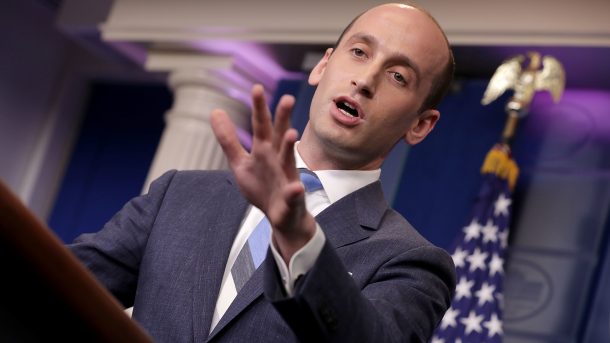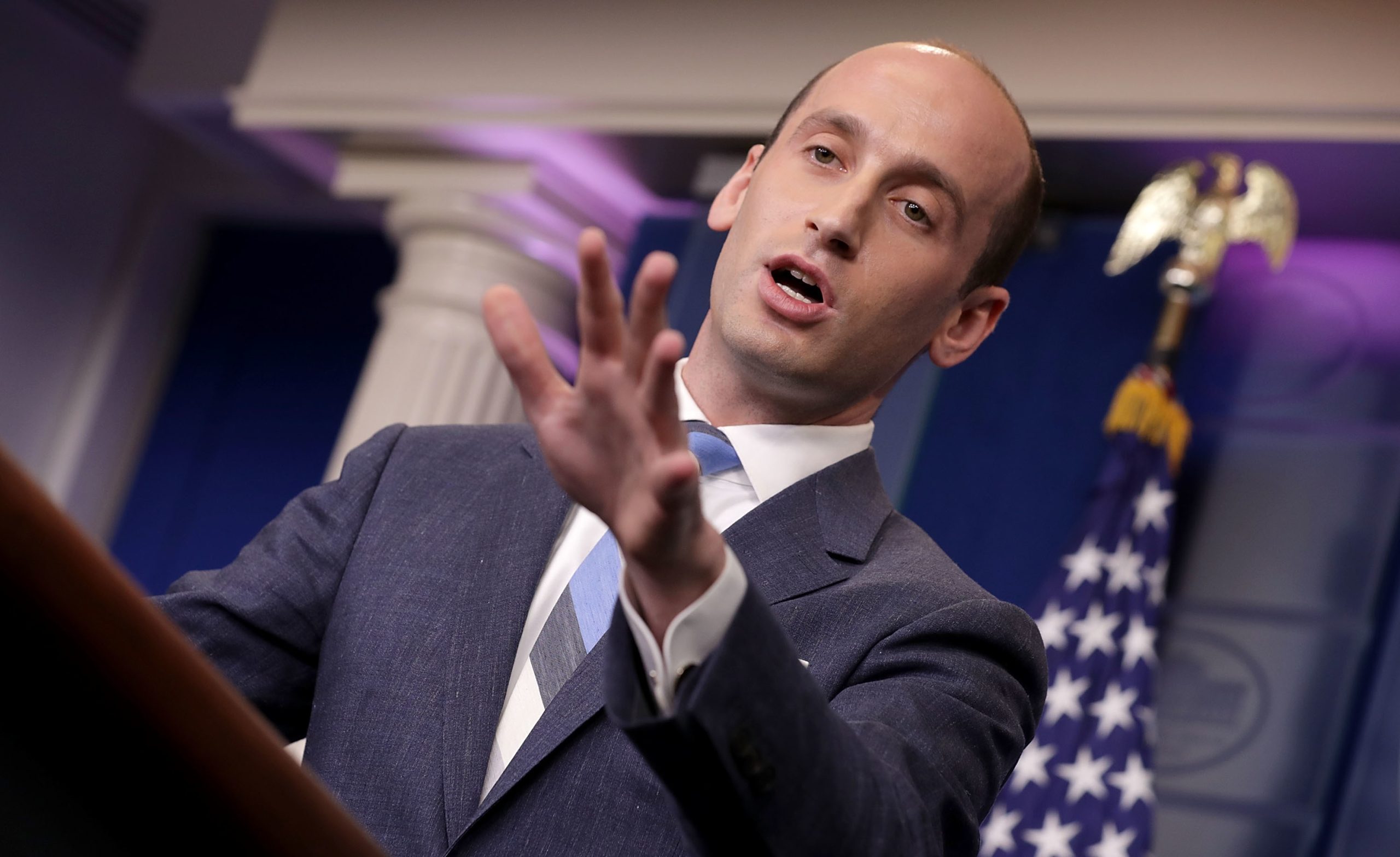Oval Office clash erupts – Stephen Miller delivers brutal takedown of Kaitlan Collins that left viewers in shock. Stephen Miller didn’t hold back. In a jaw-dropping confrontation, he tore into Kaitlan Collins with unrelenting fury, completely catching her off guard. What started as a routine exchange spiraled into a savage verbal attack that stunned everyone in the room, leaving Collins speechless. This explosive moment has ignited a storm on social media, with emotions running high and opinions divided. Here’s why this showdown is sparking fierce debate and making headlines everywhere

Stephen Miller FLIPS OUT and HUMILIATES Kaitlan Collins in the Oval Office – The Jaw-Dropping Moment You Won’t Believe! In an explosive encounter in the Oval Office, Stephen Miller completely humiliated Kaitlan Collins, calling her out with a fierce and personal attack that left her visibly shaken. What started as a standard exchange turned into a brutal confrontation when Miller, unable to hold back his fury, leaned in and verbally tore into Collins, leaving her speechless and the room in stunned silence. What did he say that had everyone on edge, and why did this moment spark such an emotional reaction? The explosive details behind this showdown will leave you gasping.

Senior White House policy adviser Stephen Miller talks to reporters about President Trump’s support for creating a “merit-based immigration system” in the James Brady Press Briefing Room at the White House on Aug. 2.
The ongoing saga of Kilmar Abrego Garcia, a Salvadoran national who was deported from the United States after what the Trump administration admitted was an “administrative error,” took another dramatic turn during a heated exchange between U.S. and El Salvador officials. The diplomatic tension between the U.S. and El Salvador has reached a boiling point, with accusations of arrogance and miscommunication from both sides. The incident has not only highlighted the legal complexities surrounding Garcia’s deportation but also revealed the deeper issues at play regarding the handling of foreign nationals and international cooperation.
The Exchange: Arrogance or Accountability?
The exchange, which unfolded during a press briefing, began with a pointed question from a reporter asking about the ongoing dispute between the U.S. and El Salvador regarding Garcia’s deportation. The situation had already become a diplomatic flashpoint, with both sides making conflicting statements about the legal responsibilities and implications of Garcia’s removal. The reporter pressed U.S. officials on why they were involving themselves in the internal affairs of another country, especially given that Garcia was a citizen of El Salvador.
The response from U.S. officials was swift and pointed. “It’s very arrogant, even for American media, to suggest that we would tell El Salvador how to handle their own citizens,” the spokesperson declared. This assertion was made to underscore the idea that the U.S. should not be seen as overstepping its bounds by telling El Salvador what to do with one of its nationals. While the comment was meant to shift the focus back to El Salvador’s responsibility, it also revealed a certain level of frustration with the ongoing media scrutiny and diplomatic pressure surrounding the case.
El Salvador’s Refusal: A Standoff Between Two Nations
The dispute took an even more dramatic turn when the issue of whether El Salvador would comply with the U.S. court’s ruling that Garcia must be returned to the U.S. was brought into question. The U.S. administration had already acknowledged that Garcia was mistakenly deported to El Salvador and was now urging the Salvadoran government to abide by the court’s ruling and facilitate his return to the U.S.
However, El Salvador’s president, Nayib Bukele, was steadfast in his refusal to take responsibility for Garcia’s deportation, emphasizing that his country had no obligation to reverse a decision made by another nation’s legal system. The President’s spokesperson further argued that “no version of this legally ends up with him ever living here” because Garcia was a citizen of El Salvador. Bukele’s statement was clear: El Salvador would not be pressured by the U.S. to take back a man that they had no legal obligation to return.
This position escalated the tension, turning the situation from a legal matter into a diplomatic standoff. The U.S. government’s insistence that El Salvador cooperate with the return of Garcia was met with a blunt refusal, further complicating an already difficult issue.

“Boom Roasted” and the Public Fallout
In an unexpected twist, the interaction quickly became personal. As tensions rose, the exchange shifted from a legal and diplomatic discussion to a pointed, almost mocking tone. “That’s why nobody watches you anymore, you have no credibility,” the U.S. official snapped, directing a personal insult toward the media representative and seemingly the broader criticism surrounding the situation. This comment, followed by a “boom roasted” remark, left many stunned, as it escalated a diplomatic debate into something more akin to a reality TV feud.
The statement, intended to deflect attention away from the criticism of the U.S. administration, was seen by many as a further indication of how the situation had spiraled beyond mere legalities. The media response to this comment was swift, with critics questioning the professionalism and diplomatic acumen of the officials involved. The exchange seemed to further muddy the waters, making it difficult for anyone to focus on the legal questions at hand—such as whether Garcia should have been given the right to due process before his deportation.



